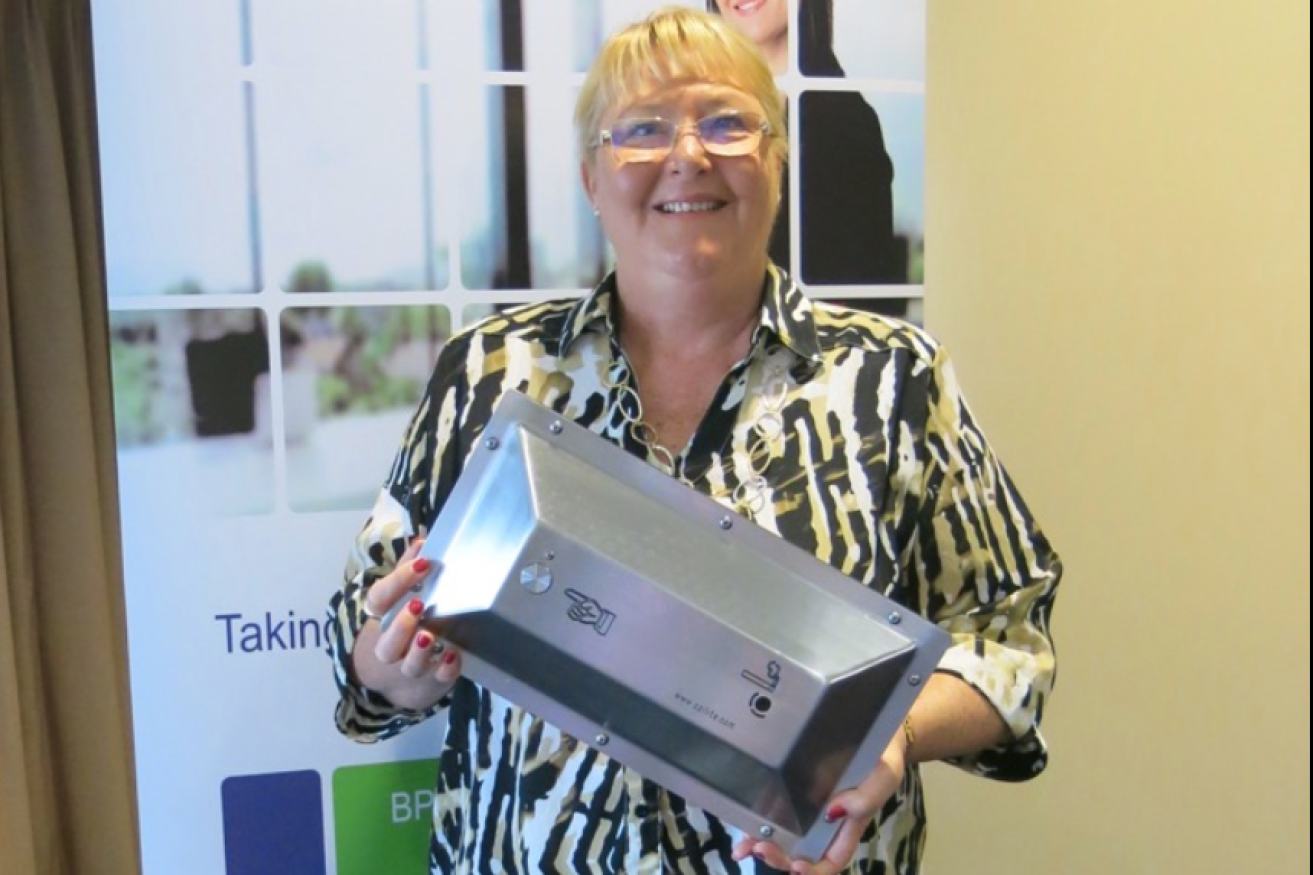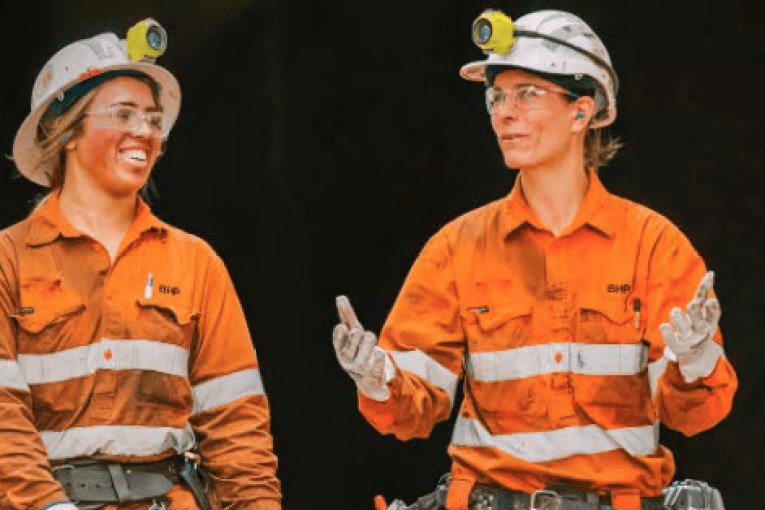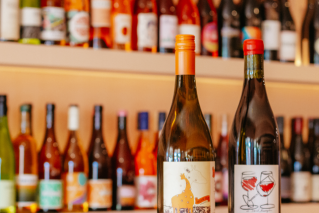When a small idea catches fire, it can light up a world of opportunities
Caboolture-based Ozilite is one of Queensland’s more than 1600 manufacturing companies successfully exporting around the globe. They did it by solving a local problem that turned out to be universal, writes Robert MacDonald.


Joy Leishman, co-founder of Caboolture-based exporter Ozilite.
Here’s a business idea you’ve probably never thought of – making sure high-risk prisoners have risk-free smokos.
But think about it. Do you really want to give violent criminals access to an open flame?
Do you really want to endanger the lives of prison guards by having them light their charges’ cigarettes?
Caboolture-based TV repairman Ron Leishman spotted the problem more than 20 years ago when he was servicing nearby high-security Woodford prison’s hundreds of televisions.
He saw an opportunity.
Today Ron and wife Joy run Ozilite, which manufactures its patented “Flameless Cigarette Ignition System” at a small factory near Caboolture airport.
Smoking in Australian prisons was banned some years ago but that hasn’t dented Ozilite’s business.
The company had its best year ever in 2019 and was expecting a strong 2020, until COVID-19 struck.
The reason for its continued success? Exports.
Ozilite is just one of the more than 1600 Queensland manufacturing companies that are currently exporting.
Ron and Joy didn’t realise it at the time but the world is full of places where smoking and exposed flame don’t go together – from oil rigs and chemical plants to paint factories, military facilities, psychiatric hospitals and anywhere where people are locked up.
“If you can imagine any sort of workplace where they don’t want people ad hoc smoking, they define a smoking area, they ban lighters and matches and then the smokers are required to use our lighters,” Joy says.
And because Ozilite’s press-button cigarette lighters were designed to survive in high-security prisons, they can be installed anywhere.
“I often say I know far too much about what a supermax prison requires,” Joy says.
“We had to design something that’s located where people are incarcerated, like a supermax prison, so that they’re robust and safe.”
“I can’t impress that enough, if you want to think about it.”
Ron and Joy had no thoughts about exporting in the early days.
But word soon got out, especially after they started supplying all of Queensland’s prisons.
They began fielding international inquiries, first from New Zealand and then Europe and the United States, where they once attended the American Jail Association’s annual trade show.
“They made a big fuss of us because we were the only Australians who had ever had a stall there. It was good for business,” Joy says.
“Correctional facilities, especially in northern Europe and psychiatric hospitals have also been very large markets for us,” Joy says.
Ozilite has also found good demand for its solar-powered model, particularly in the Middle East.
“But for the last decade, it’s pretty much been dominated by the oil and gas industry and offshore rigs,” Joy says.
Ozilite has now been exporting for 23 years and has a dozen distributors around the world, from Malaysia, Singapore and China to the Netherlands and Germany.
But it also makes plenty of sales to countries where they have no distributors.
“We sell directly into Sweden and Norway, all the Scandinavian countries, and also to places like Nigeria and the Bahamas.”
Joy says exporting has become progressively easier over the years and not just because of growing brand recognition. The Ozilite brand name is now in architects’ briefs for new prisons around the world.
In the early days, the company would sometimes miss out on deals because of a reluctance to send off product to new customers without seeing the money first.
But the development of trustworthy online payment systems changed all that.
So too did other internet developments such as YouTube and Dropbox, which mean the Ozilite team can communicate directly and quickly with, say “an electrician in Norway who might have a particular need for one of our models to be outside on a post.”
Joy was also an early adopter of Linkedin as a way to confirm the company’s credentials for would-be customers.
The company has achieved its export success with limited government support.
Joy says Ozilite did once successfully apply for an Export Market Development Grant, a Federal Government program that refunds exporters some of their market development expenses.
The company did receive “a couple of thousand dollars” but Joy said it wasn’t worth the effort to get it.
“I would never touch it again. It was an absolute waste of effort.
“We weren’t trained to go into what we went into but we were more than capable of developing our own market.
“You actually do the work and then you get to write about it and then you have to spend weeks filling in forms. Not worth it at all
“I admire people who go through that process. But they must have very boring lives.”
With that said, Joy, who was the mayor the Caboolture Shire for eight years before it became part of the Moreton Regional Council in 2008, does have some strong views about what government can do to help local manufacturers and small exporters.
She believes the government could spend more time encouraging what she calls “cluster developments” – groups of small manufacturers in a defined area that have common needs and interests, in particular when it comes to supply chains.
“You can sometimes spend literally weeks trying to find the right componentry whereas if they did cluster developments, you could share the knowledge,” Joy says.
Joy also believes industrial relations laws should be changed to make it easier for small manufacturers to crank up quickly if they get a big order but she accepts it’s a tough sell politically.
Joy won’t talk volumes or dollars, preferring to describe Ozilite as “a small niche business that has kept a number of people going”. She says the Caboolture facility provides full- and part-time work for about five people.
“It’s been an interesting journey, I must say,” she sums up.
“In all honesty, we didn’t think it would have a future because we thought people would give up smoking.”












